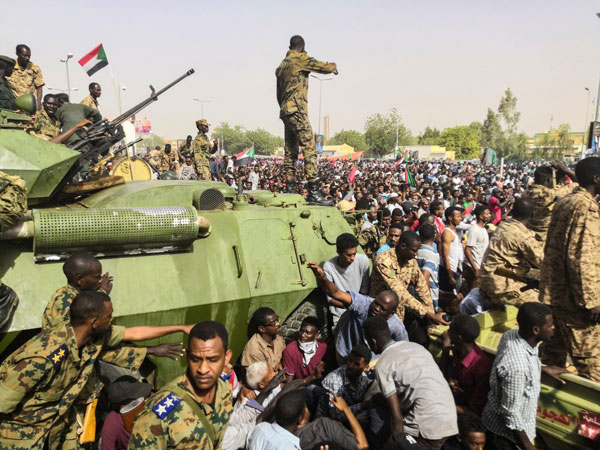Sudan’s healthcare system collapses as the Sudan Crisis continues

[Sudan Crisis. Photo credit to Wikimedia]
The Sudan Crisis is a battle for control that has been going on for three weeks already as it started on April 15 and has caused many hospitals to close.
Amidst the chaos and violence that has plagued Sudan, the repercussions on the collapsed healthcare system have been devastating, leaving millions of vulnerable lives hanging in the balance.
This fight is between the paramilitary group, the Rapid Support Forces (RSF), and the Sudanese Army.
Many fear that this will expand into something bigger and out of control.
Problems are arising as the battle continues. .
One of them is the health care services which are falling apart, especially in the capital, Khartoum.
Since fighters are attacking the hospitals, many doctors and nurses are fleeing, leaving hospitals closed and people unable to go anywhere to get treated.
Because of the crisis, two-thirds of the health centers have closed and some are left with only a couple of doctors and nurses since more than a dozen health care workers were killed.
Those who have remained have opened up small clinics in living rooms to provide for the people at least some kind of treatment for wounds or diseases.
Even without much water, electricity and supplies, physicians are trying their best by using whatever they can to help save lives.
The limited resources available are often directed towards emergency cases, leaving preventive care and routine treatments woefully neglected.
Thus, many are dying from diseases that could have been treated with the right medical supplies and an open hospital.
Overall, the battle has left more than 500 dead and thousands wounded.
Because a lot of people are getting injured and killed, there was a truce between the two groups for three days so that people could find refuge or escape to somewhere that is safer.
As the situation is getting more out of hand, the United Nations secretary general’s office is sending humanitarian affairs and emergency relief coordinator to Sudan to try to stop the crisis from getting bigger.
Other nations nearby are trying their best by providing help in evacuating people.
Many are using planes to help transport people, and, recently, Britain airlifted more than 2,122 people.
Though nations are aiding the people in their escape, doctors who remained in Sudan have not received enough support; moreover, communication systems have weakened which makes it harder to help those who are wounded.
Some organizations, like the International Committee of the Red Cross, are showing their support by sending medical supplies, which are much needed.
Even with many trying to help, citizens of Sudan are still left with nowhere to go to be treated as most health services are occupied for fighters.
Some doctors are even forced to work for the fighters which leaves many physicians fleeing and unable to help civilians.
As the number of people available to tend to the wounded and sick are few, the number of bodies on streets are increasing.
Since hospitals are lacking, some clinics are only open to pregnant women and children.
Already, 220 babies have been born since the fight started.
To help people, doctors are using Facebook to share which hospitals are open and for remaining doctors to report to field hospitals that are open.
Even with the aid of many, people are still dying every day as the distance between the hospital and someone’s home is too far, no matter how close you live near it, as a battle might begin suddenly.
Others are stuck at home unable to get out and escape because of gunfire.
Another issue is that the paramilitary forces are occupying the national lab where samples of malaria and tuberculosis are stored and could be wrongly used.
If these samples were to be released, more lives could be lost.
As the Sudan Crisis continues, many lives are in danger every single day.

- Gah Ohn Anna Suh / Grade 9
- Radnor High School

![THE HERALD STUDENT REPORTERS [US]](/assets/images/logo_student_us.png)
![THE HERALD STUDENT REPORTERS [Canada]](/assets/images/logo_student_ca.png)
